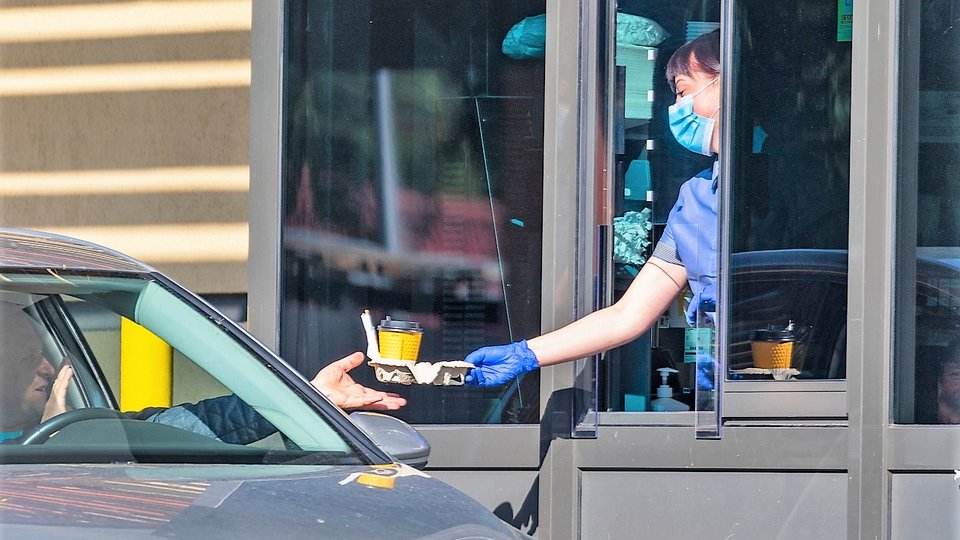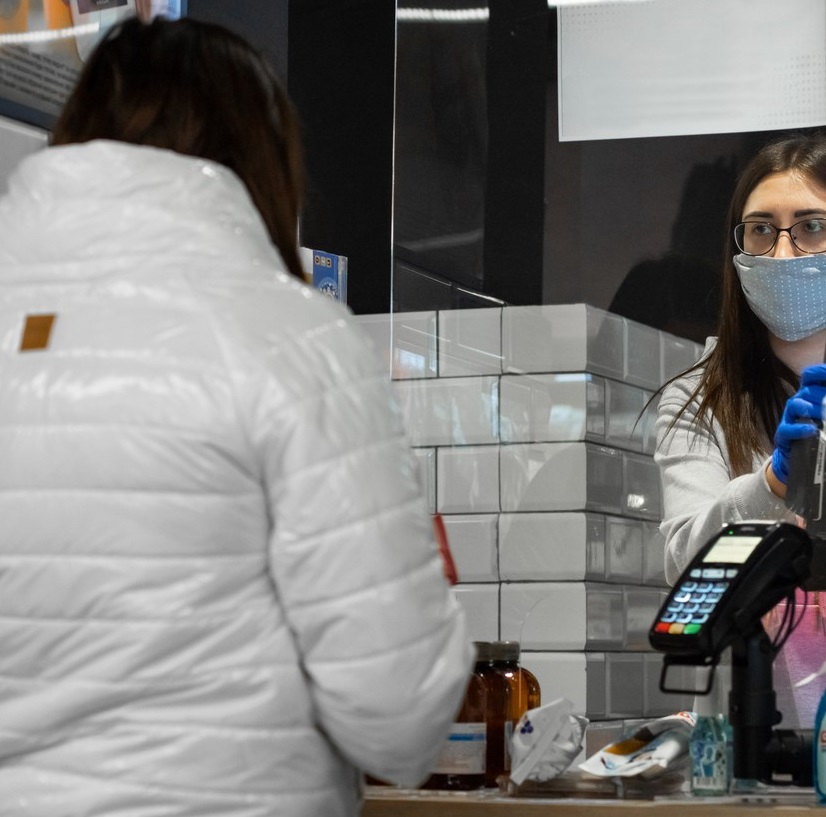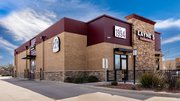Staffing
Meeting QSRs' urgent app-based COVID-19 training needs
QSR leaders nationally are urgently seeking training services that can be pushed out quickly to vast numbers of hourly workers across many locales and types of outlets. Mobile app-based services are stepping up to keep brands operating safely, while helping them engage customers in difficult circumstances.

May 28, 2020 by S.A. Whitehead — Food Editor, Net World Media Group
While COVID-19 has left many restaurant industry players in search of business or just simply ways to do business under new constraints, restaurant mobile app-based training providers report being inundated with urgent requests from QSRs that need to get front line staff quickly up to speed on all the changing elements that they must learn to do their jobs in the midst of a pandemic.
Quick-service brands often gravitate toward this type of training, since their hourly staff are — as any operator knows — always on the move, with little opportunity for desk- or classroom-based training services. Add to that training need, all the additional new and often suddenly generated federal, state, local and restaurant company mandates related to COVID-19, and you have a near-desperate situation on the part of many restaurant leaders who need to keep their brands operating safely, legally and profitably.
One example of this type of training was detailed in this recent QSRweb podcast featuring an interview with Rachael Nemeth, whose ESL Works English-as-a-second-language training app is now offered alongside COVID-19 training for all restaurant workers through its partner business, stopCOVID.co.
Another mobile app-based training provider — this one previously focused primarily on improving restaurant workers training around the customer experience, called Nudge Rewards — has also been on the receiving end of an onslaught of urgent industry requests for pandemic-related training at the more than 10,000 North American restaurants the company currently serves.
Nudge Rewards works by dosing out short bits of training or "nudges" to employees through a gamified service that depends heavily on two-way interaction with employees, often through a feature on the app referred to as "Voice of the Employee." Through that interactive feature, workers can share their insights from the front line about what works and what doesn't, as experienced in the daily reality of their particular restaurant location.
"As brands are now thinking about how to reopen, it's one thing to come up with a plan at corporate, but it's another when that plan is actually activating on the front line and the learnings that happen as they activate the plan," Nudge Rewards co-founder Jordan Ekers said in an interview with QSRweb.
"So every single one of our (restaurant client) brands right now is getting feedback directly from the front, either to the franchise owner or to an entire location or to entire organization on whether their standard operating practices did or did not work with employees saying things like, 'Here's an idea on around how we can improve curbside pickup.' There is no shortage of brilliant ideas around how to optimize operations. And so I think for us that's actually been one of the most utilized parts of Nudge."
A key to restaurant agility: training feedback
It makes sense. After all, that's the kind of real-time feedback that the market increasingly demands of restaurant brands, which have repeatedly shown it works as long as those on the receiving end of the feedback act relatively quickly to make course corrections, implement more workable ideas or simply undo things that just aren't working. After all, if there's one thing that all restaurant operators are learning in the suddenly topsy-turvy playing field laid out by COVID-19, it's that only the agile and adaptable survive.
For Paducah, Kentucky-based Dippin' Dots, and its sibling brand, Doc Popcorn, that feedback feature has been integral to making COVID-19 training work across a variety of venues, many of which are just now gearing up with new hires for summer. Dippin' Dots Director of Franchising Steve Rothenstein said the feedback loop afforded in some of the app-based training services not only gives managers an eye into how training is being absorbed and executed but helps brand leadership catch problems almost as they are occurring in order to act on them before they become systemic issues.
 "The individual owners can have conversations among their own teams and I get to see some of that. …" Rothenstein told QSRweb in an interview. "And if I see rumblings about a thing that maybe they're afraid to tell us … I can see something that's occurring and I can act on it."
"The individual owners can have conversations among their own teams and I get to see some of that. …" Rothenstein told QSRweb in an interview. "And if I see rumblings about a thing that maybe they're afraid to tell us … I can see something that's occurring and I can act on it."
By way of example, he referred to some store app-based conversations around reopening and concerns about how stores would actually get customers to space themselves out adequately to comply with pandemic-era mandates that customers remain 6 feet apart.
"So it was like they were asking, 'How does that happen?' And I think somebody else asked about a similar kind of thing in our system," Rothenstein said. "I put it together and we created branded floor stickers that pop in some color … and we designed them, and had them printed and we're sending them out to all of our franchisees."
COVID-19's 'multi' problem — multi-state, multi-franchisee, multi-venue
In Dippin' Dots' case, the training demands have been complicated by the fact that many of their franchisees operate stores or other types of outlets across several states and include everything from pushcart stands and kiosks to inline and full stores, each with its own requirements and needs.
Add to that the fact, that a fair share of those venues operate around the festival and summer event season — which is also in flux depending on where you're located — and you get an idea of the headaches the brand faces. Just knowing which outlets can do business by local law is a feat to keep track of, but add to that each franchisees operational status, as well as their number of new hires needing the full program of training, and you get an idea of the variables that make a franchising director stay up at night.
"For example, Southern California folks right now … they're all shut down, right?" he responds, referring to the state of summer festivals in that state. "So, what I do need to focus on are the stores that are opening up in the areas like Panama City through Alabama … and Gulf Shores because they're all opening up. … This allows me to be very regional … where before (use of the mobile app training) not only was that a challenge, it wasn't happening."
Rothenstein said he also likes the fact that this type of training automatically generates reports that verify employees are using the education the company and its provider are generating and comprehending it. Similarly, he said it's very helpful that the digital nature of the app allows for the often-daily modifications in COVID-19 training that are generated by local, state and federal authorities.
"So when I need to make a little bit of an adjustment … they're (in this case, the brand's training app provider, Nudge) able to accommodate that easily, or at least from my perspective, you know, they flip the switch and things are working and they flip another switch and it works a little bit differently. … Before, how we would have accomplished other than manually calling everybody?"
QSR leaders: Training need is urgent, evolving
Just as mobile app-based training services are dispensing information to restaurant staff, these companies are also are also on the receiving end of a lot of information from QSRs concerning employee and customer needs now. And that feedback has prompted Ekers to move Nudge Rewards from the defensive playbook to the offensive game plan, when it comes to COVID-19-related training.
He explained that most QSR front line employees have, or are receiving, the training needed to ensure their safety and that of their customers. Worker safety and safe on-the-job practices form the first and most important element of pandemic-era education for restaurant workers, Ekers said, because not only do many customers remain skittish about dining out, but many employees are also fearful about their on-the-job risks of contracting the illness. That's why he said it's so important that training programs continue to communicate around safety to let employees know their companies have their backs.
But Ekers said as a training provider, it's also critical now that QSRs provide information going forward to help restaurant staff engage customers and create a memorable customer experience, despite all the masks and gloves and social distancing.
"The change management that's required at scale right now to be able to effectively bring to life a new guest experience is the No. 1 priority that we are hearing across the industry," Ekers relayed. "I think every single brand right now — from our interaction with our customers as well as industry leaders that we're meeting with — has recognized that they need to provide a digital solution for their front line to be able to properly train and educate them on all the new SOPs that are being rolled out. That's the corporate lens.
"And I think there's two facets here from the corporate lens, as well as the associate lens, which are driving that market urgency around needing to have a solution actually. Traditionally the restaurant manager has been the catalyst (for training) who received the information and verbally communicated it to the team. But, just given all the changes happening in the world, every brand now is looking for digital connection directly to the frontline."
For Dippin' Dots and Doc Popcorn — both in their first year with mobile app-based training across 150 outlets nationally — Rothenstein believes this type of training interface has already paid dividends in by keeping pace with accelerated training demands COVID-19 has placed on today's U.S. restaurant industry. But, he said, the real proof of the app-based training's effectiveness and pay-off operationally will be in whether it moves the needle on all those little problems that QSRs have that seem to hang around for years, refusing to improve despite management's best efforts to solve them.
"For example, you know, if you're a part of our birthday club at different (Dippin') Dots you get a free ice cream on your birthday when you go to the store. … But we still get a certain number of people that get turned down on a regular basis. It's unfortunate, but I believe that one program will be almost 100% successful for every location after this training."
It may seem like a little thing amidst all the other heavier concerns that QSRs have around their many training requirements in a COVID-19 environment, but for Rothenstein, those birthday cones will act as a sort of sweet and creamy litmus test to prove the company's training investment was worth the money. Stay tuned.
Inset photo: iStock
About S.A. Whitehead
Pizza Marketplace and QSRweb editor Shelly Whitehead is a former newspaper and TV reporter with an affinity for telling stories about the people and innovative thinking behind great brands.









